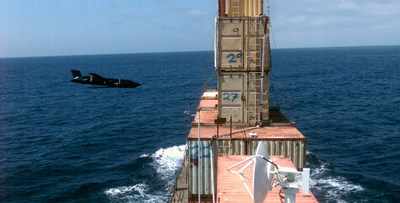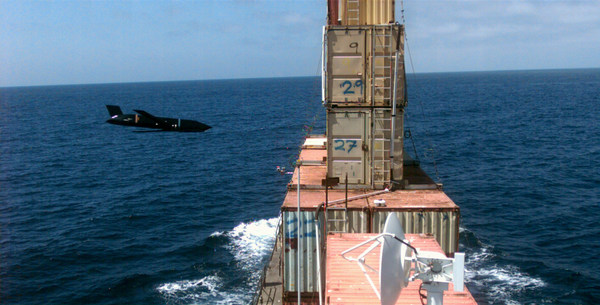Releases
ORLANDO, Fla., March 19, 2018 /PRNewswire/ -- Lockheed Martin (NYSE: LMT) successfully tested a production-configuration Long Range Anti-Ship Missile (LRASM) from a U.S. Air Force B-1B bomber.

During the test, a B-1B from the 337th Test Squadron at Dyess Air Force Base, Texas, launched a LRASM over the Sea Range at Point Mugu, Calif., successfully impacting the maritime target and meeting test objectives.
"LRASM has now proven itself in six consecutive flight missions," said David Helsel, LRASM program director at Lockheed Martin Missiles and Fire Control. "The reliability and outstanding capability of LRASM will provide an unmatched weapon to our warfighters in their quest for sea control in contested environments."
LRASM is designed to detect and destroy specific targets within groups of ships by employing advanced technologies that reduce dependence on intelligence, surveillance and reconnaissance platforms, network links and GPS navigation in electronic warfare environments. LRASM will play a significant role in ensuring military access to operate in open ocean/blue waters, owing to its enhanced ability to discriminate and conduct tactical engagements from extended ranges.
LRASM is a precision-guided, anti-ship standoff missile based on the successful Joint Air-to-Surface Standoff Missile - Extended Range (JASSM-ER). It is designed to meet the needs of U.S. Navy and Air Force warfighters in contested environments. The air-launched variant provides an early operational capability for the U.S. Navy's offensive anti-surface warfare Increment I requirement to be integrated onboard the U.S. Air Force's B-1B in 2018 and on the U.S. Navy's F/A-18E/F in 2019.
About Lockheed Martin
Headquartered in Bethesda, Maryland, Lockheed Martin is a global security and aerospace company that employs approximately 100,000 people worldwide and is principally engaged in the research, design, development, manufacture, integration and sustainment of advanced technology systems, products and services.

SOURCE Lockheed Martin


